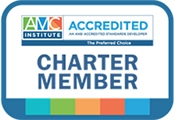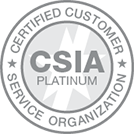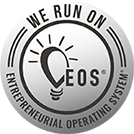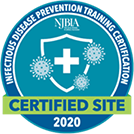Does this situation sound familiar… You’re listening to presentation by a prospective vendor who wants your business, or a speaker at an industry event, and you start drifting because all you see are graphs and numbers. Instead of trying to refocus, you decide to check out your fantasy football line-up for the week on your phone because honestly, all this data is simply an information overload.
We’ve all been there and authors of “Drinking from the Fire Hose,” Christopher Frank and Paul Magnone, note that just about everyone these days suffers from the 24/7 explosion of information from our computers, smartphones, media, colleagues, vendors, and clients. Information is essential to making intelligent decisions, but more often than not, it simply overwhelms us. It's like trying to drink from a fire hose.
The question isn't how to stop all those emails, meetings, calls, and reports; that's impossible. The question is what to do with them. How do you find the essential nuggets of data and use them with confidence?
Frank and Magnone’s answer seems deceptively simple: Learn how to ask the right questions at the right time. Asking smarter questions will expose you to new information, point you to connections between seemingly unrelated facts, and open new avenues of discussion.
They outline seven key decision-making questions that you need to ask in order to move forward. Because we are in the association management community, I have related some of these questions to fit our field.
 Discovery
Discovery
What is the essential information? As an association management professional, you have to learn to identify the essential question that will lead you to an orderly, informed process of discovery and, ultimately, to success. The wrong question leaves the core issue unaddressed and leads to more meetings about meetings.
How do we illuminate the unexpected? What will be the impact to your members and other stakeholders? Keep their wants/needs in mind and make sure you are asking, how could this decision negatively impact our members? How will members perceive this change? How will our association manage the change for the members? How will we track the impact of these changes on member behavior?
How do we counter short-term thinking? Be cognoscente of your decision’s relevancy — is it more focused on short-term movements or long-term objectives? Make sure the changes are not just noise and keep in mind your member’s lifecycle.
 Interpretation
Interpretation
How do we change the dialogue? Often, we scan reports looking for confirmation, not information. We sit in meetings trying to decipher what our leadership is willing to hear, not necessarily what the numbers are telling us. Game-changing information is a surprise, and you will miss it if you’re in the habit of looking for corroboration instead of information. Data overload makes potentially valuable surprises even harder to recognize so try to create an environment with your team and volunteers that allows time to discuss the surprises, not just the information that is common knowledge and reports confirmation.
How do we champion objectivity? Focus on key signals and zero in on the issues that is going to drive your association and leadership forward. You need to learn to separate the important signals from the noise and the useful information from the false, misleading, or irrelevant data.
How do we grow? If you are looking to grow your non-dues revenue, for example, focus on the swing voters. After you get your conference evaluations back, focus on the evaluations in the middle — not necessarily the highly satisfied or the highly dissatisfied exhibitor. Concentrate on this data set and try doing something special for them that swings them to the side of renewal!
 Delivery
Delivery
What would compel us to act? Finally, ask yourself three questions: What? So What? Now What? This three-part approach not only provides you with a simple framework for cutting through information overload; it also allows you to tell a story, the most effective form of communication.
Next time you are in a data overload situation, think about these seven “Fire Hose” questions. Cut through the clutter, gather the information you need to move forward, discover some surprises along the way, and be on the offensive line in your next meeting!




